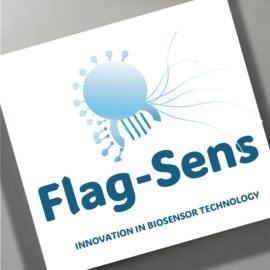
Serbia: {Srbija}
Serbia is the number two producer of raspberries in the world
Agriculture at the heart of the country’s economy
Serbia’s fertile land and natural conditions for agricultural production. The major agricultural land is in the northern part of the country Agriculture in Serbia is an engine for development of rural areas. Agriculture’s contribution to Serbia’s GDP remains high. In 2016, agriculture accounted for 11.9 percent of GDP.
Approximately 60 percent of Serbia’s agricultural land is used for cereal crop production including corn, wheat, barley, sunflowers, soya, and sugar beets. Agriculture is also the most important export sector in Serbia.
Room for Improvement
Serbia needs to define budgetary incentives and adopt laws and rulebooks that facilitate agricultural development, as well as greater farmer training and exposure to new technologies. Serbian agrifood sector could benefit from achieving current European standards and EIT Food can help them follow the right course.
EIT Food HUBs in Serbia: The National Alliance for Local Economic Development (NALED) and University of Novi Sad Faculty of Agriculture (UNSFA)
The National Alliance for Local Economic Development (NALED) is a non-profit, non-partisan association, working to create better living and working conditions in Serbia and the region. It is the largest public-private association in the area, with over 300 members and a partner network of over 100 institutions and international organizations. NALED actively promotes public-private dialogue and is a key contributor in shaping reform priorities and legislation relevant for the economy. NALED's expertise is vast, with its professionals contributing to more than 70 government working groups for drafting legislation and national strategies on topics such as counteracting shadow economy, enhancing competitiveness, and developing digital economy, among others. Its Executive Office consists of 86 full-time employees, and it also involves a broad network of over 100 consultants and experts, both national and international, providing technical expertise for a variety of stakeholders. Apart from its domestic impact, NALED is a catalyst for reforms in Southeast Europe. Since 2012, it has been serving as the regional secretariat of the Regional Network for Improving the Business Environment in Southeast Europe, encompassing more than 20 institutions and organizations from across the region. This network propels regional initiatives for harmonizing investment policies, like acquisition of construction permits (e-permits), registration of seasonal workers, and cadaster reform.
NALED has proven expertise in developing software tools and platforms for the benefit of citizens, businesses, and institutions, such as e-construction permitting, a system for registering seasonal workers, and a Regional SEE BFC /ICT tool, among others. Its Analytics and Research unit provides independent analyses, evaluations, and reports, having developed over 400 of such publications. NALED has also founded alliances between companies, local governments, associations, and research institutions to support a modern regulatory and institutional framework and a stable business environment. These alliances focus on various sectors including environment protection, fair competition, e-government, food and agriculture, healthcare, property and investment. In addition to its other departments, NALED has a dedicated Communication and development department, with PR and Marketing units experienced in outreach campaigns, increasing visibility, raising awareness, and disseminating project results.
University of Novi Sad Faculty of Agriculture (UNSFA) stands as the nation's foremost institution dedicated to agricultural and agrifood education. With a robust team of 350, including 250 members focused on research and teaching, UNSFA spearheads the creation and dissemination of knowledge and innovation across the agricultural sector.
At UNSFA, curriculum spans eight diverse departments: Animal Science, Field and Vegetable Crops, Fruit Growing, Viticulture, Horticulture and Landscape Architecture, Agricultural Engineering, Agricultural Economics, Water Management, Plant and Environmental Protection, and Veterinary Medicine. This comprehensive approach ensures a rich, interdisciplinary education for students.
To support educational and research objectives, UNSFA operates several state-of-the-art experimental sites. These include an edible insect farm, a cow-calf system farm, an advanced experimental poultry farm, agroforestry grounds, as well as vineyards and orchards for wine and fruit production respectively. Each site provides invaluable hands-on experience and research opportunities for students and faculty, reinforcing the commitment to practical and innovative agricultural education.

Serbian cuisine is a heterogeneous cuisine. It is blend of Mediterranean flavours with the heartier eating habits of Central Europe.
Latest EIT Food Serbia news
On the blog
More blog articles
Water and integral ecological regeneration: the Italian case
Discover the EIT Food partners in this region


Innovation projects
View all projects
Resilient Agriculture Think & Do Tank










